Uganda's Bobi Wine Rejects Poll Results, Claims Victory
Ugandan opposition leader Bobi Wine on Friday claimed victory in presidential elections, rejecting as a "complete sham" early results that gave President Yoweri Museveni a wide lead.
Wine told AFP he felt under threat as soldiers surrounded his home on Friday evening, after they jumped over the fence of his compound following his first accusations of fraud to the press.
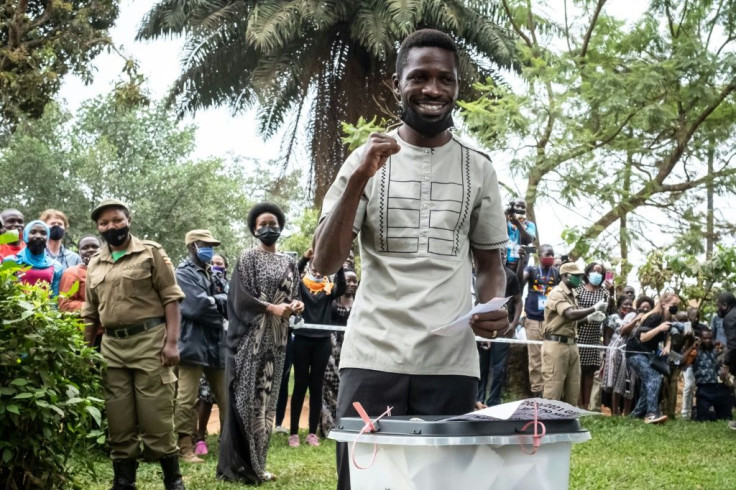
Museveni, 76, is seeking a sixth term after almost four decades in power, and the former popstar Wine has emerged as his main rival in a youthful country where most have known only one president.
The internet remained down for a third day as vote counting continued from Thursday's poll, with provisional results from 39 percent of polling stations giving Museveni an early lead of 62 percent while Wine trailed with 29 percent.
As the results came in, Wine said in an interview at his home that soldiers had jumped the perimeter fence of his compound and beaten his security guard before taking up position around his house.
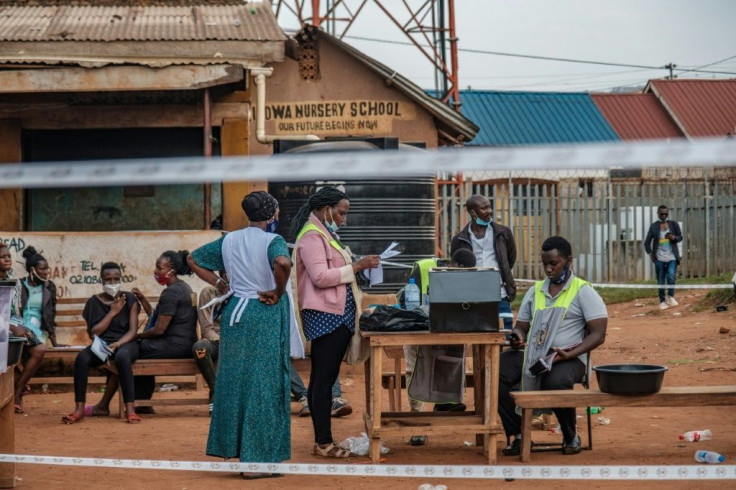
"They jumped over my fence. They came inside my compound. They are here right now. I don't know why they're here. But I'm imagining they are here to harm me. I feel threatened," said the 38-year-old, who described the invasion as unprecedented and "a siege".
He said he confronted the soldiers, who briefly cocked a gun at him and journalists, and refused to respond or leave.
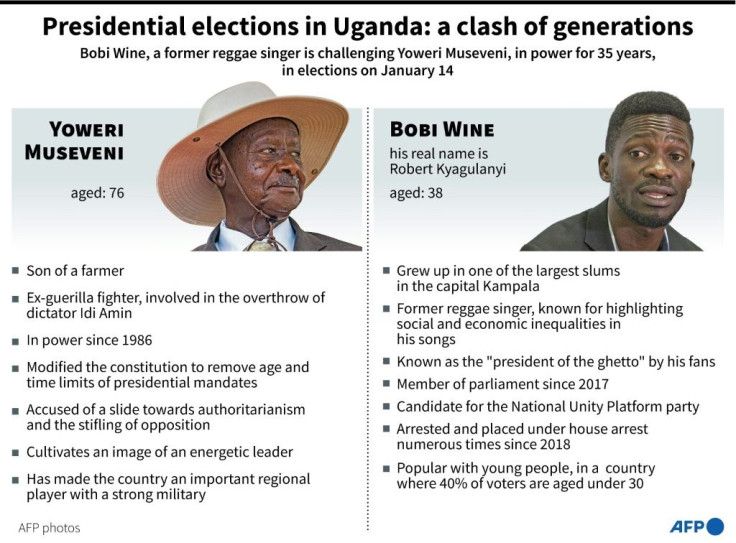
Earlier Wine had reeled of a list of election regularities during a press conference in his garden, such as ballot box stuffing, and his party's polling agents being beaten and chased away in parts of northern and western Uganda.
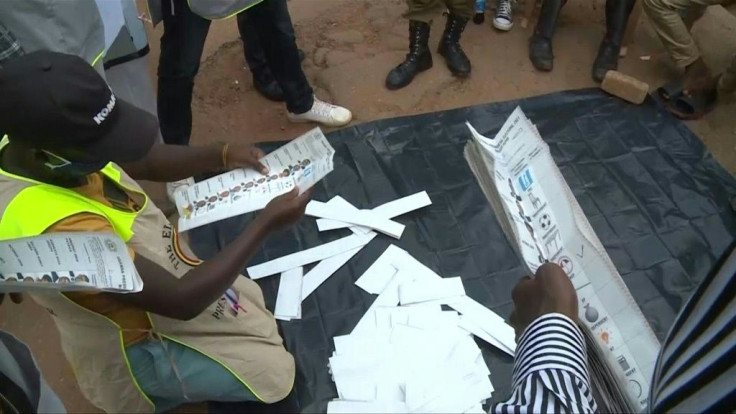
"I am very confident that we defeated the dictator by far. I call upon all Ugandans to reject the blackmail. We have certainly won the election and we've won it by far," Wine said journalists.
"Whatever is being declared is a complete sham, we reject it and we dissociate ourselves with it."
Wine, whose real name is Robert Kyagulanyi, promised to provide video evidence once the internet was restored.
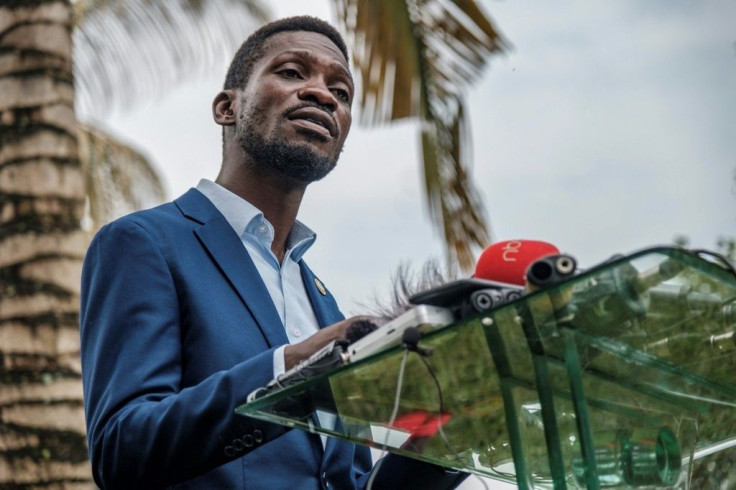
Election commission chairman Justice Simon Mugenyi Byabakama said he did "not appreciate the assertion that these results we are reading out are rigged".
"The onus is on candidate Kyagulanyi to show how votes are rigged."
On Friday morning the capital Kampala was quiet and some businesses remained closed, while soldiers and police patrolled on foot.
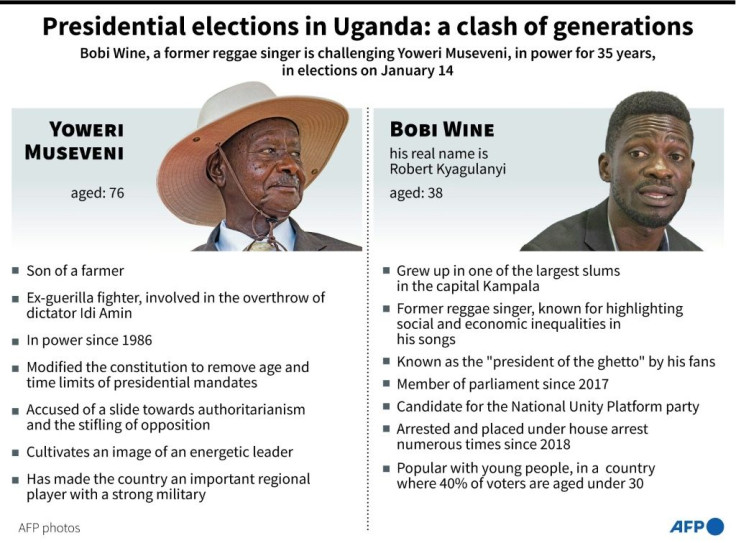
Full results are expected by Saturday afternoon.
Museveni faced a total of 10 candidates, but it is the popularity of the former popstar Wine, who grew up in a slum and is nicknamed the "ghetto president", that has rattled the former rebel leader.
The poll followed one of the most violent campaigns in years, with harassment and arrests of the opposition, attacks on the media and scores of deaths.
However Byabakama said the vote had gone off in a "peaceful and tranquil manner".
Police spokesman Fred Enanga said there had been "no major cases of violence reported".
A senior foreign diplomat told AFP there had been sporadic incidents of violence and many irregularities, but no sign of mass manipulation.
The US, EU, UN and global rights and democracy groups have raised concerns about the integrity and transparency of the election.
The United States, a major aid donor to Uganda, cancelled a diplomatic observer mission after too many of its staff were denied permission to monitor the election, and aside from an African Union mission there was no major international group watching over the vote.
Museveni has ruled Uganda without pause since seizing control in 1986, when he helped to end years of tyranny under Idi Amin and Milton Obote.
Once hailed for his commitment to good governance, the former rebel leader has crushed any opposition and tweaked the constitution to allow himself to run again and again.
And for many in the country, where the median age is 16, Museveni's glory days are no longer relevant or sufficient.
But Museveni, one of Africa's longest serving leaders, has never lost an election and observers expect this time around will be no different.
Two days of protests in November led to the deaths of 54 people.
© Copyright AFP 2024. All rights reserved.




















